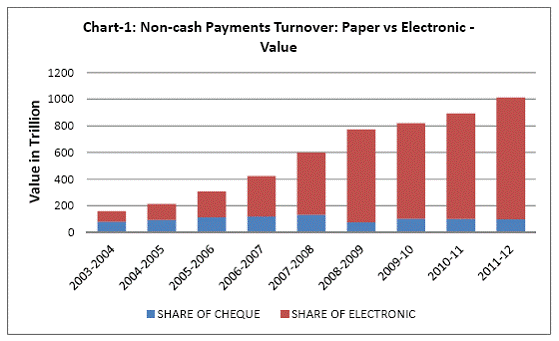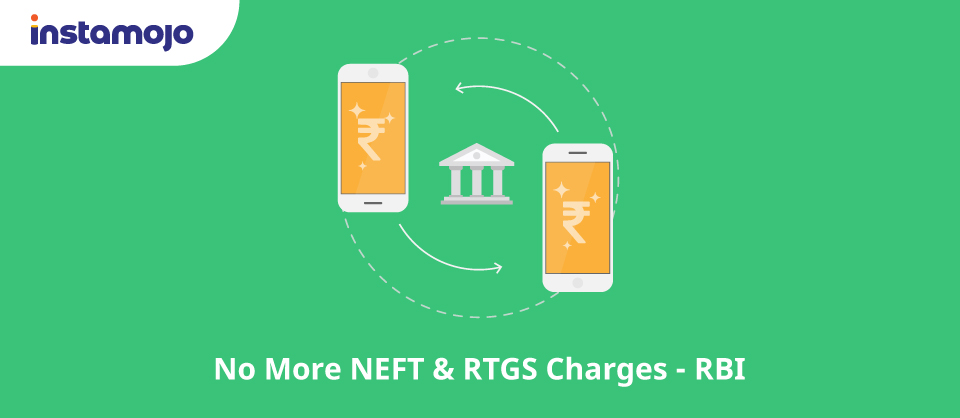Great news! The RBI removes charges on NEFT and RTGS transactions for businesses and individuals alike! The RBI made the decision just a few hours ago and decided to do away with the minimum charges it levies on NEFT and RTGS transactions.
How this works:
The RBI removes charges on NEFT and RTGS in a bid to boost digital payments in India. The RBI levies minimum charges to banks on banks for any online NEFT and RTGS transactions routed through payment gateways. Through this, banks levy a small charge on customers for every transaction. With the new rule, banks will be required to pass these benefits to its customers as well.
What are NEFT and RTGS payments?
In a nutshell, both NEFT and RTGS payments are types of online payments that allow you to electronically transfer money using a payment gateway.
NEFT (National Electronic Funds Transfer):
NEFT is an online money transfer service where any person can send/receive money given both parties have an account number and the bank is enrolled in the NEFT program. This payment system facilitates one-to-one funds transfer. With this, individuals can transfer money online from any bank branch to another account with any other bank branch. Small businesses can also use NEFT to track payments. For example, with Instamojo NEFT, all bulk payments are tracked using VAN. This helps ease the manual customer mapping process for every transaction.
Through NEFT, you can send money during the bank’s working hours. Since the fund transfer happens in batches, there can be a delay in money transfer.
RTGS (Real Time Gross Settlement):
RTGS is an online money transfer mode that allows you to transfer funds on a ‘real-time’ (immediate) basis. The main difference between NEFT and RTGS is: the money is settled in batches for NEFT making it slower.
With RTGS, the money is credited in the beneficiary’s account in real-time. This fund transfer method is typically used to transfer huge amounts of money.
What are the NEFT and RTGS Charges?
Previously, banks levied NEFT and RTGS charges on customers who carried out these payments online. The charges varied for NEFT and RTGS payments are:
NEFT:
|
AMOUNT |
ONLINE (Internet) |
OFFLINE (Branch) |
|
Up to INR 10,000 |
INR 1 + GST |
INR 2.50 + GST |
|
INR 10,000 – INR 1 lakh |
INR 2 + GST |
INR 5 + GST |
|
INR 1 Lakh – 2 Lakh |
INR 3 + GST |
INR 15 + GST |
|
> INR 2 Lakh |
INR 5 + GST |
INR 25 + GST |
RTGS: The minimum transfer amount has been updated to INR 2 Lakhs.
|
AMOUNT |
ONLINE (Internet) |
OFFLINE (Branch) |
|
INR 2 Lakh – INR 5 Lakh |
INR 5 + GST |
INR 25 + GST |
|
> INR 5 Lakh |
INR 10 + GST |
INR 50 + GST |
RBI’s Vision 2021 for Online Payments:
The decision to eliminate all charges on NEFT and RTGS transactions comes as part of the RBI’s vision document for the payment and settlement systems in India. This document outlines the future roadmap of digital payments in the country.
The RBI has made drastic decisions to promote digital payments in the country. Apart from dropping all NEFT and RTGS charges, the RBI has taken suggestions to:
- Remove convenience fee on payments made to government agencies by customers
- Recommended that payment systems use machine-driven, online dispute resolution systems to handle customer grievances.

The RBI plans to set up a committee involving important stakeholders, under the chairmanship of the Chief Executive Officer, Indian Banks’ Association (IBA), to examine a different segment: ATM charges and fees. After dropping charges on online transactions, RBI plans to tackle ATM cash withdrawal charges too.
The main motive of RBI’s vision document is to create the roadmap to a ‘less cash’ society, followed by a ‘less-card’ one, if we dare. Apart from this, the RBI also seeks to increase efficiency in digital payments, reduce the channels and boost payment gateways to increase trust, safety and security in online payments between businesses and customers.
Instamojo NEFT/VAN:
We did it first! If you use Instamojo’s NEFT to track and collect all your payments, you must know, it is free! Track, manage and reconcile all your payments in one place. You can also map payments to customers using Virtual Account Number.


1 comment
very useful information. Thanks.But has it started in practical and from which date RBI instructed tothe other Banks to exempt NEFT/RTGS service charges.Is this applicable to all Banks or only PSU.